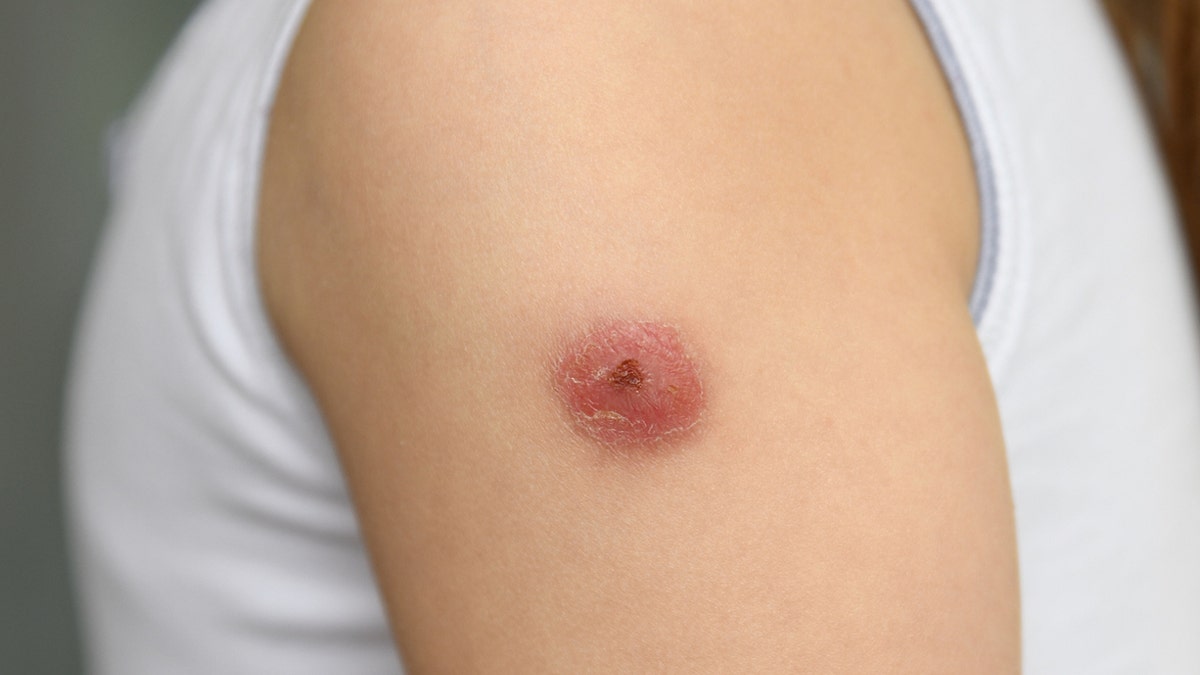The first fatality from Alaskapox, a type of orthopoxvirus, has been reported on the Kenai Peninsula of Alaska.
State officials released a bulletin Feb. 9 detailing that an elderly man contracted the virus in Sept. 2023, likely from an infected stray cat who scratched him.
The man, whose immune system had been suppressed by cancer treatments, first noticed a tender red bump in his underarm. Over the next few weeks, he also experienced fatigue and pain in his arm and shoulder.
‘ARCTIC ZOMBIE VIRUSES’ COULD BE RELEASED BY CLIMATE CHANGE FROM THAWING PERMAFROST, SOME SCIENTISTS CLAIM
On Nov. 17, the patient was hospitalized with cellulitis, a bacterial skin infection, according to the Alaska Department of Public Health (ADPH).
The man was transferred to a hospital in Anchorage, where a series of tests determined the source of his painful infection. Despite extensive treatment, the patient ultimately died in January 2024 after experiencing malnutrition, acute renal failure and respiratory failure, the bulletin said.
“This is the first case of severe Alaskapox infection resulting in hospitalization and death,” the bulletin stated.
“The patient’s immunocompromised status likely contributed to illness severity.”
What is Alaskapox?
Alaskapox is similar to other orthopox viruses, such as monkeypox and smallpox — but its symptoms are typically not as severe.
It is a zoonotic virus, which is transmitted between people and animals.
Alaskapox is spread by small mammals in Alaska, primarily voles.
MEASLES OUTBREAK: UK DECLARES NATIONAL HEALTH INCIDENT OVER RISING CASES
Since the first documented case in Fairbanks in 2015, there have only been six additional cases, including the Kenai Peninsula man who succumbed to the infection.
All cases have affected people who lived in wooded areas and had cared for pets who had been in contact with small mammals.

Dr. Aaron Glatt, chair of the department of medicine and chief of infectious diseases at Mt. Sinai South Nassau Hospital in New York, pointed out that although Alaskapox is a type of orthopox virus, it’s “nowhere near” as concerning as smallpox.
“It’s in the same family, but that doesn’t mean it [warrants] the same level of worry for the general public,” he said in a phone call with Fox News Digital.
“I think it’s something we all should be aware of, but it’s not something that presents a major public health disaster.”
It is more similar to monkeypox than smallpox, the doctor said.
“I think it’s something we all should be aware of, but it’s not something that presents a major public health disaster,” Glatt said.
Spread and symptoms
Although there have been no cases of the virus spreading from person to person, the ADPH recommends that people with skin lesions potentially caused by Alaskapox keep the affected areas covered with a bandage and avoid sharing bedding or other linens.
In addition to the skin lesions, infected patients may experience swollen lymph nodes and joint or muscle pain, according to the ADPH.

Most patients who have had the virus experienced only mild symptoms that resolved on their own within a few weeks.
“It’s usually a very mild infection, but there’s the potential that it could be more serious in the immunocompromised,” Glatt said.
“In that case, any mild infection that would normally not cause serious illness can be much more serious.”
“It’s usually a very mild infection, but there’s the potential that it could be more serious in the immunocompromised.”
“It is likely that the virus is present more broadly in Alaska’s small mammals and that more infections in humans have occurred but were not identified,” the ADPH stated.
“More animal testing is occurring to better understand the distribution of the virus in animal populations throughout Alaska.”
CLICK HERE TO SIGN UP FOR OUR HEALTH NEWSLETTER
To Glatt’s knowledge, there are no targeted medications specifically for Alaskapox.
“I’m sure that some of the other viral agents that have been used for monkeypox could theoretically have some benefit, but to my knowledge, nobody has tried that,” he said.
As far as whether Alaskapox could spread to other states, Glatt said it’s unlikely at this point.

“If it’s an animal vector and the animal is found mostly in Alaska, it’s going to be seen thereabouts,” he told Fox News Digital.
“I can’t tell you that it couldn’t transmit to another area, but at this point in time, it is not a major public health concern.”
The ADPH noted that this was the first case of Alaskapox identified outside the Interior region of Alaska, which could mean the virus is more widespread in the state than previously thought.
“SOE is working with the University of Alaska Museum and CDC to test small mammals for AKPV outside the Interior region,” the agency stated.
Those who suspect they may be infected with Alaskapox can contact the Alaska Section of Epidemiology at 907-269-8000 to facilitate testing and treatment, per the ADPH.
Fox News Digital reached out to the ADPH for additional comment.
For more Health articles, visit www.foxnews/health.
Read the full article here